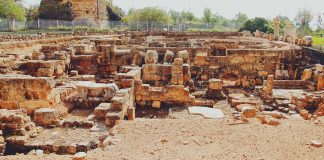Five reasons why I have faith in God
Faith has brought me not only a sense of God's presence, but also evidence that He is answering our requests. Therefore, the other reasons that made me believe have become stronger.
R(el)ational faith
In the maximalist search for evidence that can justify our belief and, at the same time, help us defend our reputation, something is lost: the very concept of faith.
Jesus, the commandments, and legalism
Over the centuries, strong but artificial tensions have been created between the Gospel of Paul (proclaimed especially by Augustine and many Protestants) and the "legalism" of the biblical writers James, Peter, Jude, and so on, which Catholic and Orthodox theologians have usually defended. What is at stake in these tensions is the authority of God's commandments and thus the duty or obligation to...
Is Christianity a cult?
Western society has a fascination with cults. The word itself conjures up imagery of a seedy leader sporting dark aviator sunglasses and captivating a group of conservatively dressed people with his every syllable. The word brings a subtext of utter devotion but also absolute brainwashing or mind control.
Does divorce make us happier than continuing in an unhappy marriage?
At the age of 27, for the first time in my life, I worried that time was passing too fast. For the next few years, the speed with which most of my friends were getting married was the next source of concern.
Faith that survives unanswered prayers
The greatest tragedy of life is not unanswered prayer, but unoffered prayer. – F. B. Meyer
Is that you, God?
Christians believe that God speaks to people. But what does God sound like? Learning to recognise the difference between God’s voice and the myriad of other voices in your head takes much patience and practice. But it is possible!
The final wake-up call
I remember years ago driving to my hometown of Robertson in the Southern Highlands of NSW, Australia. It was a wet, foggy evening, and as I was nearing the crest of a hill on the outskirts of the village, I noticed a small, grey form rapidly approaching. Out of nowhere, a voice told me: “Veer to the right, now!” Startled, I did as...
The foolishness of the message of the cross
“God was pleased through the foolishness of what was preached to save those who believe” (1 Corinthians 1:21).
Stones speak to those willing to listen
On May 23, 2012, the Israel Antiquities Authority announced the discovery of a 1.5 cm piece of clay, which represents the oldest extra-biblical attestation of the town of Bethlehem. Eli Shukron, the coordinator of the excavation work, believes that we are dealing with a bulla from the 7th-8th centuries B.C., probably used for sealing a document or object.
Beholding beauty
I’m walking along a remote beach in Hermanus, South Africa. There’s not a single other footprint in the sand. I take off my shoes and let my feet sink deep into the warm, fine powder. Bliss. My friend, a local who drove me here, takes one look at my face and asks with undeniable pride, “What do you think?” But I can’t answer....
Doubt and the big choices
Some people regret the big choices they’ve made in life; others regret that life has not given them a choice.
Parents of prodigal sons
Few things can pierce a parent’s heart as painfully as their children’s decision to walk away from God. Pain, guilt, shame and the feeling of failure are the crushing burdens which parents of prodigal sons carry, while still wavering between hope and discouragement.
Jesus, a better hope
The veneration of saints is a very old tradition in Christianity. Many Christians cannot imagine their religion without appealing to saints for guidance, protection, healing and intercession. Less concerned with theological correctness, people seek the company of saints out of loneliness, hardship, sickness, fear, guilt, or disappointment.
COVID-19: Crisis prayer
A major crisis pushes us to re-evaluate the way we see and do things in the fields of health, finance, and social interaction. But how does this crisis affect our religious practices—especially the most common of these, prayer?


























